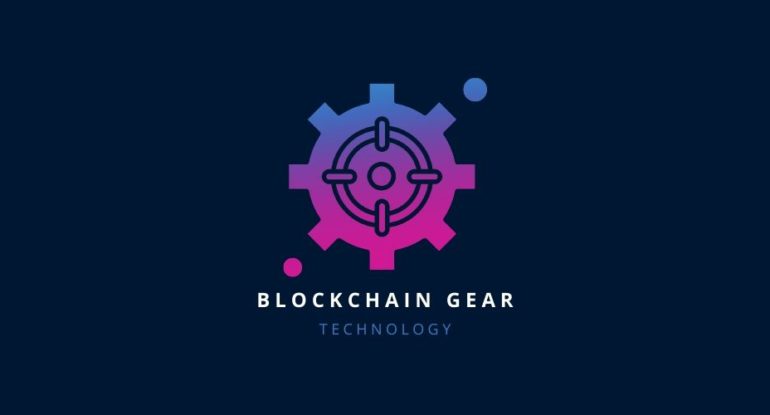Using Blockchain Technology To Democratize The Economy

Every business throughout the world is built on the foundation of trust. Transactions are impossible to complete without confidence. Industries work together through legally binding documentation that serves as a source of ‘trust’ and thus necessitates manual operations such as contracting and signing agreements. As a result, it is time-consuming, costly, and inefficient.
The capacity of Blockchain to eliminate the need to create trust between individuals or businesses prior to a transaction is what makes this technology so important. It ensures secure transactions, lowers compliance expenses, and expedites data transfer. Contract administration and auditing the origin of a product can both be aided by blockchain technology.
Blockchain is a public distributed ledger that stores all transactions and is open to public viewing for the uninitiated. This, in turn, means that anyone can see when a transaction took place and to which address it was delivered. As a result, it becomes transparent. In terms of security, cryptography is used to safeguard each block on the Blockchain, and the data is encrypted.
A blockchain’s data is irreversible. It will be saved in the database indefinitely. As a result, there’s little you can do to stop or change a transaction once it’s started. This feature of Blockchain is one of the reasons why it is being promoted for democratizing services like preserving essential documents, assisting gig workers, and increasing transparency.
A transparent system is required.
Industries operate according to a set of ‘hard and fast rules’ that were created to meet their specific requirements. This creates an unfair advantage for them over the end-user, which is us. These so-called standards are established to maintain control and manage policies, procedures, and data security, but they simply enrich industrialists.
Democratizing entails enlisting the masses in decision-making. The current systems are closed and selective, and they are tainted with corruption. Right now, there is no control over our data. There is a pressing need to free the public from the shackles of antiquated institutions, bureaucracy, and restrictive policies. This is possible because of blockchain-based transparent solutions.
In finance, Blockchain aspires to transform traditional finance and its operation. Interactions with third parties or middlemen are important to traditional finance, such as banks. Smart contracts on the Blockchain can fully eliminate this problem.
Smart contracts are algorithms that run when a certain condition on the Blockchain is met. It ensures that all terms agreed upon in a transaction are digitally proofed. They are stored in a public database and cannot be edited or amended because it operates on the Blockchain.
When a third party is involved, there is always the risk of fraud and the ability to tamper with records and agreements. Smart contracts ensure that all of the terms are met without the intervention of a third party.
Also, read – The Complete Guide to Blockchain Gaming and How it Could Revolutionize the Industry
Blockchain technologies have the potential to totally transform lending and borrowing. Virtual assets can be used as collateral, and everything is automated and powered by smart contracts. There is no need to visit a bank in order to obtain loan services.
Gig economy: Blockchain will also empower workers in the gig economy. These workers will be able to track their progress on the Blockchain over time and across markets. Gig workers will be paid based on their experience, reputation, and earning history, as blockchain-based platforms are devoid of error and manipulation. Blockchain technology empowers gig workers by eliminating burdensome, time-consuming, and error-prone processes.
Creators’ economy: Creators will have complete ownership over their work in this economy.
Energy sector: Blockchain transforms the electricity system into a peer-to-peer network, allowing everyone who uses electricity to trade, i.e., purchase or sell it on an open market. Blockchain technology is a promising tool for recording and facilitating transactions between electricity providers and consumers.
– E: Environmental
One of the biggest growing pains for the blockchain sector has been society’s negative view towards the technology,e specially the side of energy consumption.
Recent analyzes have shown that the power consumption of this blockchain is lower for up to VISA pic.twitter.com/umKlqdet9V— Ravelb (@Ravelberger) May 3, 2022
Consumers can also use automated smart contracts to sell excess electrical energy to other network participants.
Electricity distributors can use smart contracts to control power and storage flow along the grid, balancing supply and demand and lowering costs while benefiting the environment.
Music industry: Blockchain-based non-fungible tokens (NFTs) have the potential to empower music creators by transforming the rights and royalties process. This means that musicians, authors, publishers, and everyone else involved in the music industry will be fairly compensated.
NFTs are saved on smart contracts that include the name of the author, giving the original artist credibility. The digital collectibles are scarce, and they can’t be changed, updated, or even reproduced on the Blockchain, allowing producers to set their own prices and have complete control over the secondary market.
Entertainment Sector to Attract Global Audience with #Blockchain Integration.#ilink2music #ilink_2_music pic.twitter.com/lKOuusZqSD
— iLink2Music (@ilink2music) January 25, 2019
Last but not least:
Agriculture and food, shipping and logistics, government, oil and gas, healthcare, manufacturing, and government organizations that contribute significantly to the economy and welfare of the general public are all showing significant progress with blockchain integrations, albeit at a slow pace in many industries.




























































